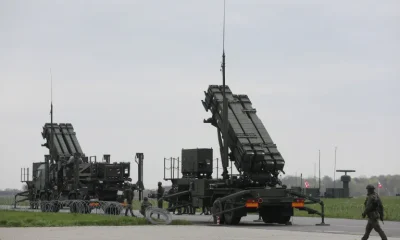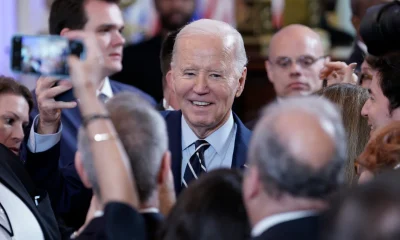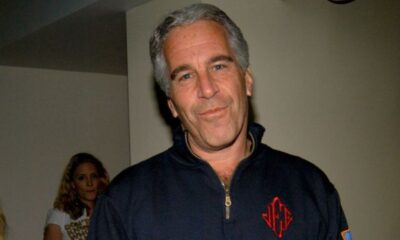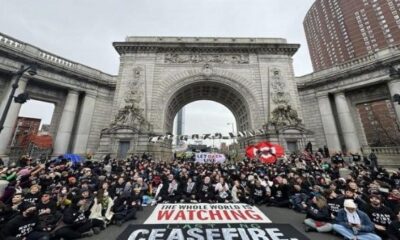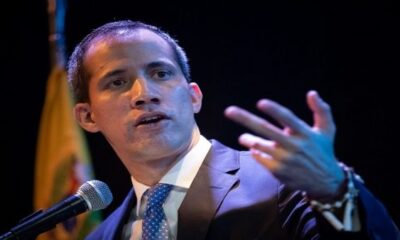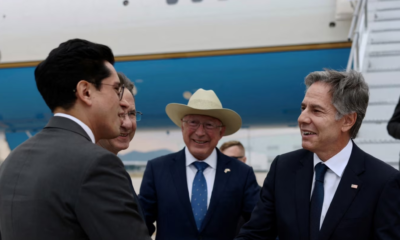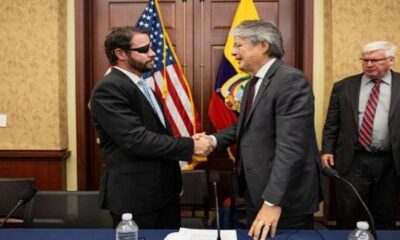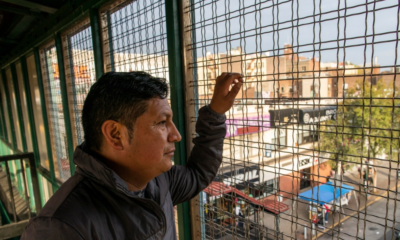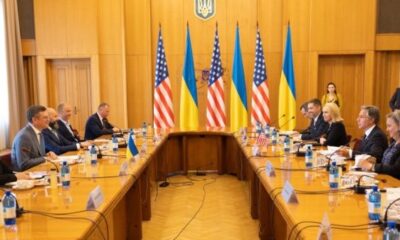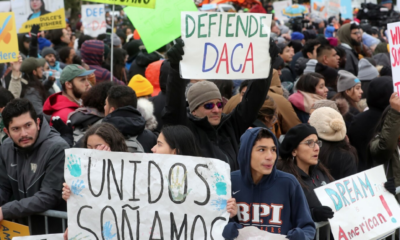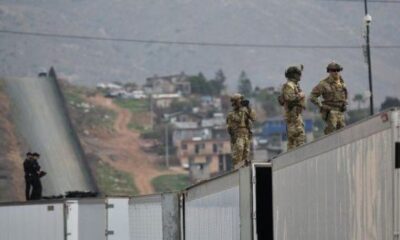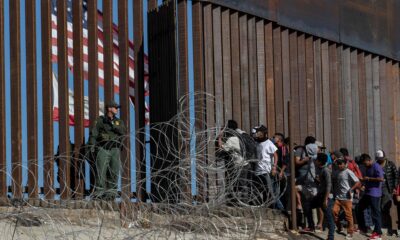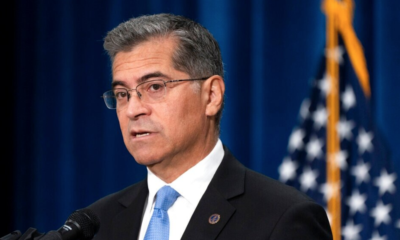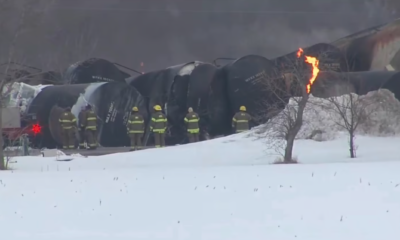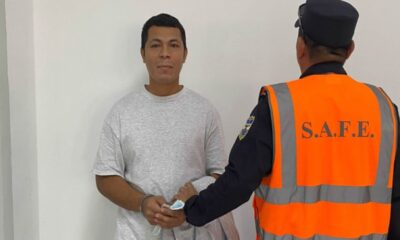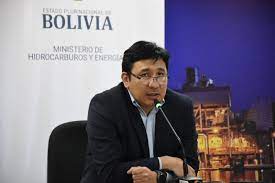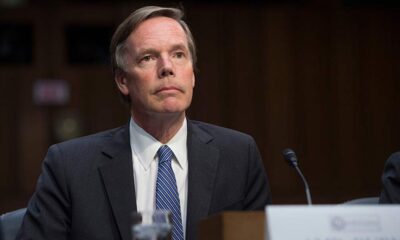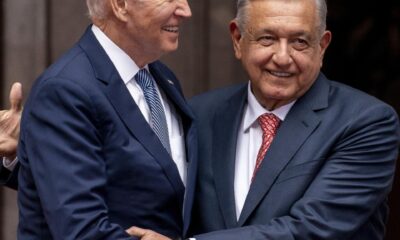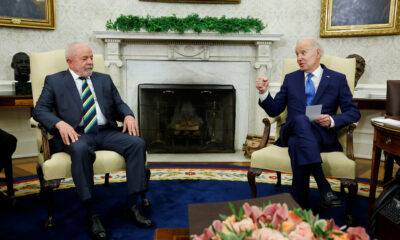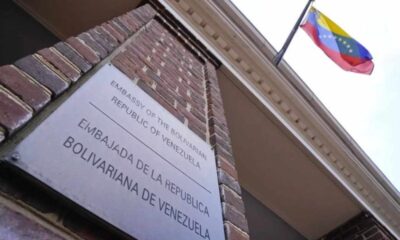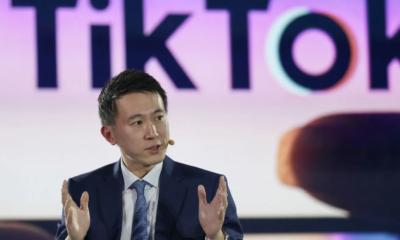International
US consumer confidence dips in November: survey

| By AFP |
US consumers were gloomier about the state of the American economy in November, likely due to a rise in gas prices and as recession risks loom, according to a survey released Tuesday.
The closely-watched consumer confidence index dipped to 100.2 in November, down two points from the month before, in a second straight month of decline, said think tank The Conference Board.
“Consumers’ expectations regarding the short-term outlook remained gloomy,” said Lynn Franco, senior director of economic indicators at The Conference Board.
The drop in consumer confidence this month, in line with analyst expectations, was “most likely prompted by the recent rise in gas prices,” she said.
Data on consumers’ short-term outlook suggests the likelihood of a recession remains elevated as well.
“Inflation expectations increased to their highest level since July, with both gas and food prices as the main culprits,” Franco said.
Consumer inflation in the United States has been hovering at the highest level in decades, prompting the Federal Reserve to take aggressive steps to raise interest rates and cool the economy.
The central bank walks a tightrope trying to bring down surging costs while avoiding tipping the world’s biggest economy into a downturn.
For now, consumer intentions to buy homes, automobiles and big-ticket appliances have moderated.
“The combination of inflation and interest rate hikes will continue to pose challenges to confidence and economic growth into early 2023,” Franco said.
But with inflation showing signs of easing and central bankers noting it would take time for policy effects to be realized, a growing number of voices including Fed officials have advocated for smaller steps in the coming months.
The consumer sentiment reading “remains depressed compared to pre-pandemic” levels, said economist Rubeela Farooqi of High Frequency Economics.
Overall, measures of sentiment “are sending a negative signal about household spending,” even if consumption continues to support growth for now, she added.
International
Claudia Sheinbaum: Operation Against ‘El Mencho’ Was Based on Pending Arrest Warrants

Mexico’s President Claudia Sheinbaum on Wednesday rejected claims that the military operation that resulted in the death of Nemesio Oseguera Cervantes, known as “El Mencho,” leader of the Jalisco New Generation Cartel (CJNG), was carried out under pressure from the United States government.
Sheinbaum explained that the deployment of federal forces was aimed at executing outstanding arrest warrants against Oseguera Cervantes, who was considered one of the most wanted criminals in both Mexico and the United States.
“That was not the objective (to ease pressure from the United States). It is very important, and I want to repeat it. This individual had an arrest warrant, or several,” Sheinbaum said, referring to the operation conducted on February 22.
According to the president, the initial goal was to capture Oseguera Cervantes, but military forces responded after coming under attack during the intervention.
“The operation was to detain him. The problem is that they were attacked — the Secretariat of National Defense — and they responded at that moment,” she said.
The president insisted that the action was not carried out in response to external demands, although she acknowledged intelligence cooperation with the United States.
“It was not done in any way because of pressure from the United States, not at all. Of course, there was intelligence information from the United States that was used specifically,” she concluded.
International
Spain Denies Any Agreement to Cooperate with U.S. Military in Iran Operations
International
White House Says Spain Agrees to Cooperate with U.S. Military After Trump Threatens Trade Embargo

White House Press Secretary Karoline Leavitt said Wednesday that Spain has agreed “in recent hours” to cooperate with the U.S. military, following President Donald Trump’s threat to impose a trade embargo on Madrid.
Trump had warned of potential commercial measures after Spain reportedly refused to allow the Pentagon to use facilities at Spanish military bases for operations related to Iran.
“With respect to Spain, I think you heard the president’s message yesterday loud and clear, and I understand that in recent hours they have agreed to cooperate with the United States military,” Leavitt said during a press briefing.
She added that the U.S. military is currently coordinating with its counterparts in Spain. However, the president expects broader support.
“The president expects that all of Europe, all of our European allies, of course, will cooperate in this important mission — not only for the United States, but also for Europe,” Leavitt said.
Her remarks came in response to questions about Spain’s position and its role as a U.S. ally amid rising tensions surrounding operations involving Iran.
-

 International4 days ago
International4 days agoIran Reports 201 Dead, 747 Injured After U.S. and Israeli Strikes
-

 International2 days ago
International2 days agoBrazil’s Supreme Court Rejects Bolsonaro’s Bid for House Arrest
-

 International4 days ago
International4 days agoPope Leo XIV Urges End to ‘Spiral of Violence’ in Middle East
-

 International4 days ago
International4 days agoSecurity Council to Hold Emergency Meeting on Middle East Crisis
-

 Sin categoría4 days ago
Sin categoría4 days agoTrump: ‘We Think It’s True’ Amid Claims Iran’s Supreme Leader Was Killed
-

 International2 days ago
International2 days agoAnti-ICE Billboard Campaign Targets Immigration Spending in 31 U.S. Cities
-

 International1 day ago
International1 day agoSpain’s Prime Minister to Address Nation Amid Trump’s Trade Threats
-

 International2 days ago
International2 days agoTrump Warns of ‘Major Wave’ of Attacks as Iran Conflict Escalates
-

 International2 days ago
International2 days agoMexico Calls for Immediate Probe After National Dies in ICE Custody
-

 International2 days ago
International2 days agoBolivia Orders Three Investigations Into Deadly Military Plane Crash
-

 International1 day ago
International1 day agoNew York Announces First 2,000 Seats in Universal 2-K Program
-

 Central America2 days ago
Central America2 days agoPanama Canal Monitoring Trade as Middle East Conflict Disrupts Shipping
-

 International10 hours ago
International10 hours agoWhite House Says Spain Agrees to Cooperate with U.S. Military After Trump Threatens Trade Embargo
-

 International10 hours ago
International10 hours agoSpain Denies Any Agreement to Cooperate with U.S. Military in Iran Operations
-

 Central America1 day ago
Central America1 day agoGuatemala’s Attorney General Fails in Bid for Top Court Seat Amid Corruption Allegations
-

 International1 day ago
International1 day agoWarner Bros. Developing First ‘Game of Thrones’ Movie With ‘Andor’ Writer
-

 Central America10 hours ago
Central America10 hours agoNicaragua Held Responsible for Harassment of Opposition Prosecutor and His Family
-

 International10 hours ago
International10 hours agoClaudia Sheinbaum: Operation Against ‘El Mencho’ Was Based on Pending Arrest Warrants





























